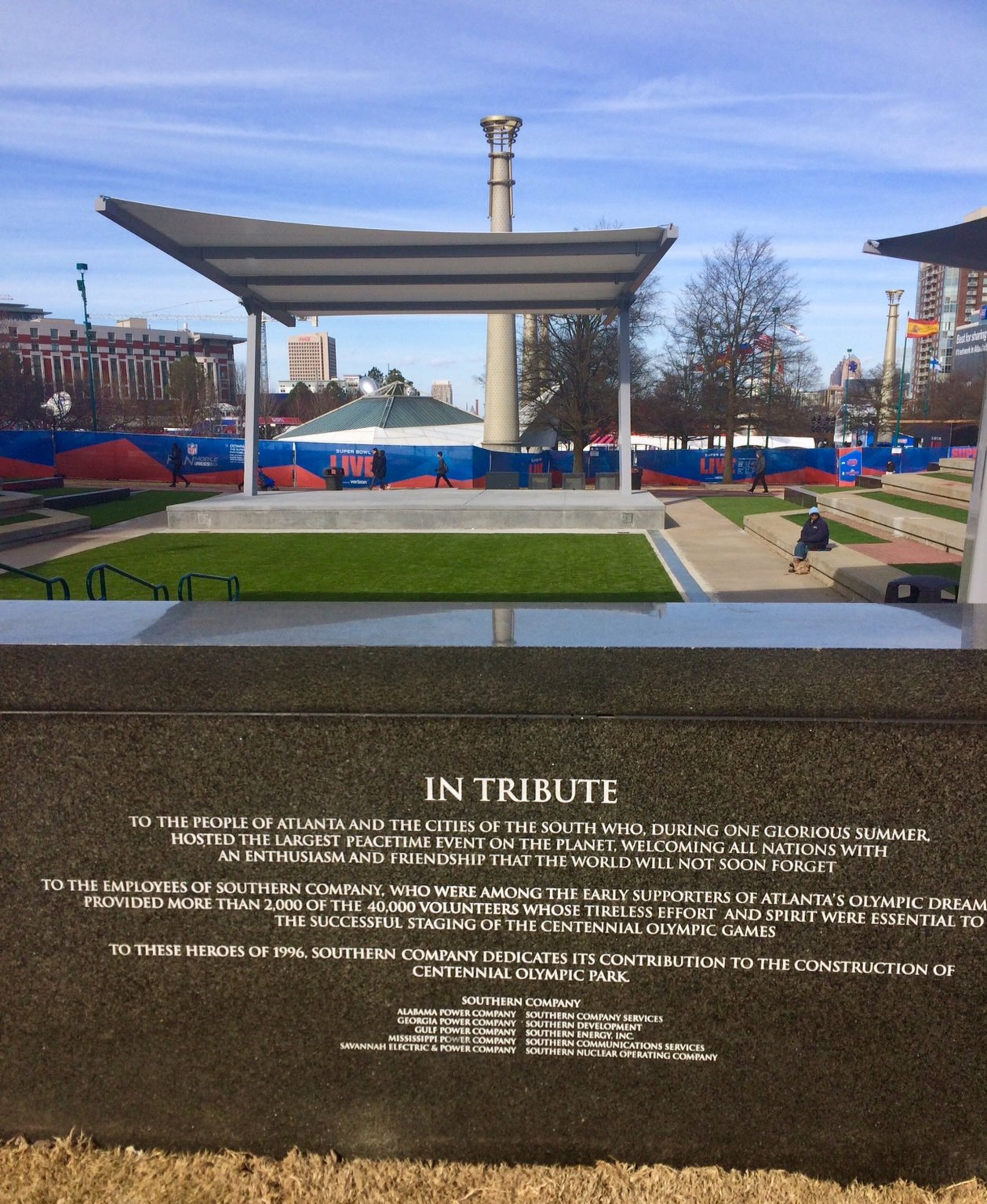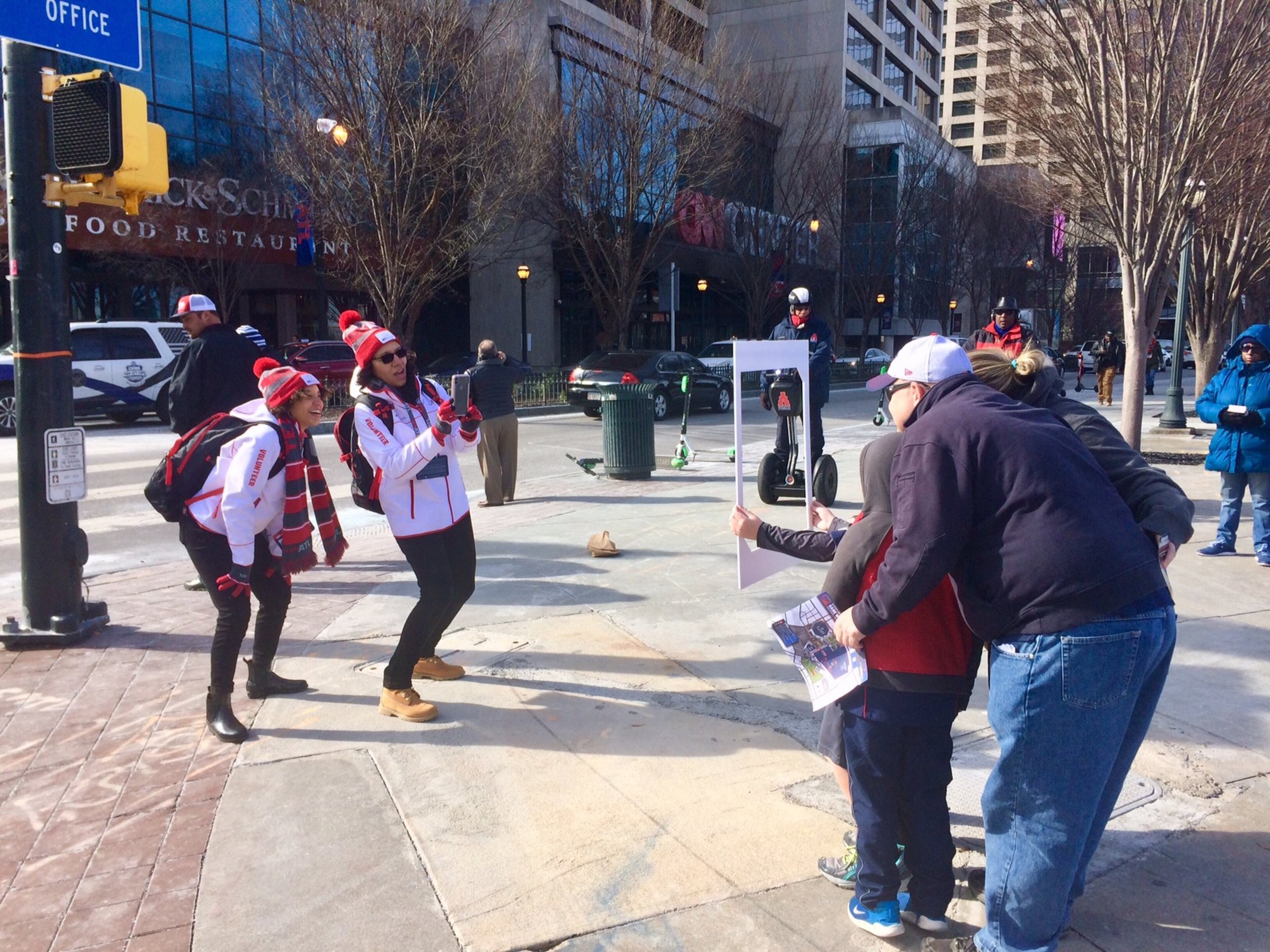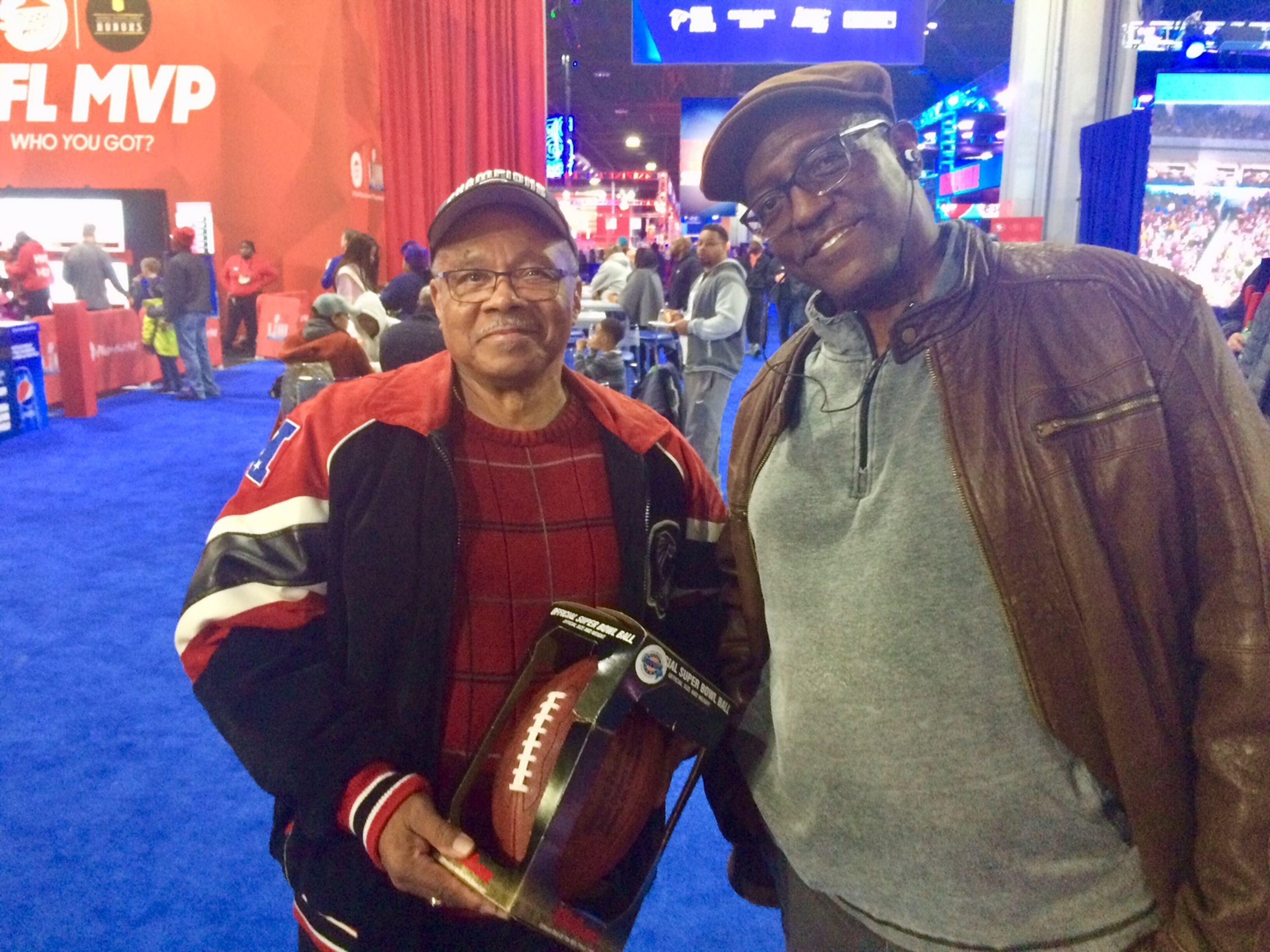Torpy at Large: When it comes to hype, The Big Game can’t beat The ATL
Super Bowl LIII allows Atlanta to do what it does very well: Pat itself on the back with one hand while taking visitors’ money with the other.
It’s a trait I’ve admired during my decades in Atlanta, an aspirational locale where hucksterism, boosterism and transactionalism are tempered with a dose of idealist realism.
Or so we say. That's how the slogan "The City Too Busy to Hate" got legs. The home of Coca-Cola knows a lot about branding, about carving out a favorable vision of a place that came to be because a couple of railroad tracks crossed over each other and folks figured this might be a good place to make a buck.

Since its inception, Atlanta has sought useful slogans and nicknames for promotion: Chicago of the South, Resurgens, The Black Mecca, HotLanta, The ATL, and Hollywood of the South.
While visiting the Super Bowl “campus” — the downtown area cordoned off by 7 miles of fencing — I came across a self-congratulatory granite memorial at Centennial Olympic Park. The marker commemorates the city and its residents “who, during one glorious summer, hosted the largest peacetime event on the planet, welcoming all nations with an enthusiasm that the world will not soon forget.”
It was one heck of a ride for those of us who were here. And although outsiders’ criticisms of the “crass commercialization” and carnival-like atmosphere stung for a moment, the city quickly returned to the business of proving itself, whether it be snagging a Super Bowl, landing a Fortune 500 headquarters or expanding the World’s Busiest Airport.
At a press conference this week, Mayor Keisha Lance Bottoms, Falcons owner Arthur Blank and some NFL suits sat on the dais waiting to speak as music blared and a coming-attractions announcer belted out what we’re all about: “We have created a city as a beacon of hope and you better believe it’s going to shine for you!
“This is our moment, our Super Bowl. We’ll turn on the lights and put on a show. We have the world’s attention. Now let’s take their hearts. We. Are. Atlanta!!!”
OK.
The Big Game is, no doubt, a cash generator, although to what extent is arguable.
According to AJC economics writer Mike Kanell, “Pinning down the economic benefit is tough. Estimates range from the Metro Atlanta Chamber’s $400 million, to the Host Committee’s $196 million, to skeptical economists with less skin in the NFL’s championship game estimating anywhere from $100 million right down to zero.”

You see signs of people making a buck all over the place — from the ubiquitous security guards in red jackets, to catering businesses, from waitresses and bartenders to Atlanta cops pulling 12-hour overtime shifts and hoping to squeeze in enough non-sleeping time for lucrative outside security gigs.
I heard someone in Buckhead is renting out his home for $15K a night. There’s even a limo shortage.
Not many of us in Atlanta are going to get into the game that's generating such excitement, but that doesn't matter for many residents: A contact buzz will do. If you're not in the $1.5 billion Mercedes-Benz Stadium on Sunday, hanging around near it must suffice.
Last year, the city and the NFL put out the call for volunteers to serve as Atlanta’s hospitality hosts. At first I thought the NFL, a money-sucking conglomerate, should pay those who raised their hands.
But more than 30,000 signed up for the 10,000 spots, meaning the NFL got its pick of who they wanted. Maybe the league was savvy. It got people who see this as a civic calling rather than a two-week job. And it didn’t have to pay them.

At the corner of Marietta Street and Centennial Olympic Park Drive, Lindsey Henry and Lisa Pruitt greeted fans as they neared the sporting carnival. Henry is a Delta Air Lines flight attendant and Pruitt is a nurse, so they by trade have a friendly aisle and bedside manner.
“I wanted to support my city; to tell people what Atlanta’s all about,” said Henry, espousing a healthy heaping of school spirit.
Inside the Georgia World Congress Center, hundreds of people lined up to spend $20 a pop to attend the NFL's Super Bowl Experience, a massive sensory overload offering that combines music, football and a chance to watch a friend shank a 20-yard field goal attempt.
Ricky Bailey, a retired Georgia Power employee who grew up at Grady Homes, came with his wife, Nancy, “because we want to be a part of it. It doesn’t come to many cities. It shows people on the outside what a city can do.”
Edward Foxworth and his brother Victor similarly visited out of a mixture of curiosity and civic pride.
“This does the same thing the Olympics did,” said Victor. “It boosts the economy and shows off Atlanta.”
Brother Edward nodded, adding, “It makes people proud of the city.”

I spoke with former Mayor Andrew Young. (He was not on the “campus.”) I mentioned to him that lifelong black Atlantans seemed to express the most pride in their hometown.
“There’s no place you can go where they’d be in charge of something like this,” said Young, who was one of the two persons (Billy Payne was the other) most responsible for stealing the 1996 Olympics from Athens, Greece.
Young said branding has always been vital to the lifeblood of Atlanta, being that it is home to the most well-known brand in the world: Coke. That has helped sell the city to companies nationally and worldwide when deciding to locate here.
PHOTO GALLERY: Super Bowl fun
At the Five Points MARTA station, Brandon Suggs leaned on a rail looking at his phone. Suggs started a blog called Livelifehalfprice.com and has seen an increase in people hitting his site, searching for deals.
He came to Atlanta 10 years ago because it’s a place where, “if you apply yourself, you can make a name for yourself.”
Suggs said an event such as the Super Bowl is positive because it crosses boundaries in this very divided nation.
“It brings people together,” he said. “It’s not about race. It’s not about religion. It’s just football.”


